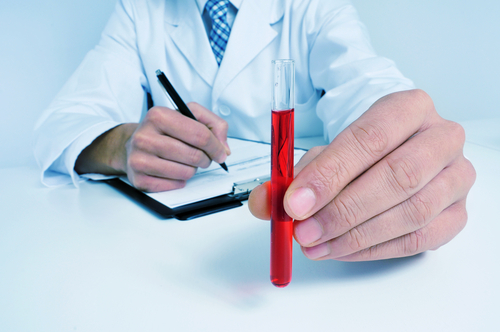Blood Test Detects Alzheimer’s Disease Before Symptoms Appear
Written by |

 A group of investigators from the University of Melbourne, Australia recently developed a simple blood test that could very well change the future of diagnosing Alzheimer’s Disease, and may ultimately be a driving force behind the improvement of patient outcomes, as it allows earlier detection of this type of dementia.
A group of investigators from the University of Melbourne, Australia recently developed a simple blood test that could very well change the future of diagnosing Alzheimer’s Disease, and may ultimately be a driving force behind the improvement of patient outcomes, as it allows earlier detection of this type of dementia.
Alzheimer’s Australia estimates about 70% of 332,000 dementia cases in the country will progress to Alzheimer’s disease. Lead investigator Andrew Hill explained in an article on ABC Australia recently that an early diagnosis is crucial to improving patient outcome with this type of neurodegenerative disease, as the damage has been shown to be irreversible. A considerable number of studies have also shown the efficacy of positive lifestyle changes in reducing the risk of developing Alzheimer’s, when implemented early on.
It was not long ago when this same group of researchers successfully identified characteristic neurological changes through costly brain imaging techniques as soon as 20 years before disease onset, but after a recent genetic analysis of patients with Alzheimer’s disease followed by a comparison of health individuals. As a result, Hill and his team moved closer to designing a simpler method of detecting it.
The initial phase of the study involved 50 participants, half of which were diagnosed with Alzheimer’s. From their mRNA, the researchers were able to identify 16 exosomes out of a total of 1,400 that had characteristic alterations strongly associated with the disease. They repeated the study, this time without prior knowledge of the participants’ diagnoses, and were able to detect the disease with an impressive 91% accuracy. This was then followed by standard brain imaging, which helped confirm their findings.
“We just are basically looking for a marker of Alzheimer’s disease using a simple laboratory test that measures the number of these microRNAs in the blood samples,” Hill said.
This technique utilizing mRNA alterations took 2-3 years to develop. Hill said their breakthrough blood test for Alzheimer’s could reach the market 3-5 years from now, after a much larger sample size is tested. Additionally, the team will be looking into possibly applying this technique and test in diagnosing other degenerative conditions such as Parkinson’s disease.





